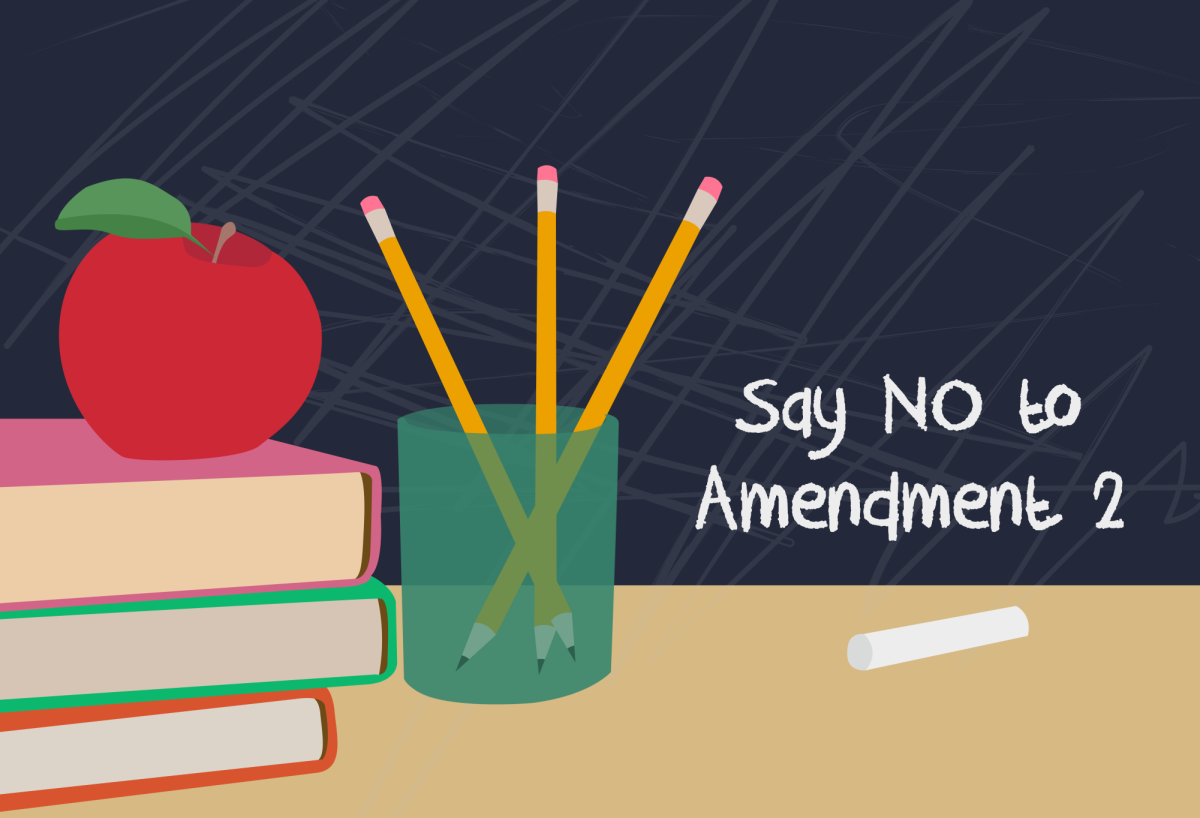Kentucky Constitutional Amendment 2, which will be on the ballot for Election Day here in Kentucky on Nov. 5, 2024, proposes a change which would allow state funding to be allocated to non-public educational institutions.
“Amendment 2, which would enable the General Assembly ‘to provide financial support for the education costs of students in kindergarten through 12th grade who are outside the system of common (public) schools,’ has generated widespread interest from both educators and parents,” Attorney General Russell Coleman said in an advisory.
As Coleman pointed out, this amendment has created discourse surrounding the funding of public schools vs. private schools and how that will affect Kentucky come election time.
In March 2017, Kentucky became the 44th state to approve legislation for non-public charter schools to begin operating, when then Gov. Matt Bevin (R) signed the bill into law. Five years later the Kentucky General Assembly passed House Bill 9, which granted local school boards the ability to transfer funds to charter schools. Gov. Andy Beshear (D) vetoed the bill, but the General Assembly overrode his veto.
That is until December 2023, when the Franklin County Circuit ruled the law unconstitutional and consequently struck it down. Judge Phillip Sheppard claimed the legislation which allowed for funding of charter schools “[attempts] to bypass the system of common schools and establish a separate class of publicly funded but privately controlled schools that have unique autonomy in management and operation of schools.”
He used the term ‘separate and unequal’ to highlight the inconsistencies incumbent of a charter school when placed under the scrutiny of the requirements of a common school in Kentucky. This system, which resides outside of the Kentucky Department of Education, doesn’t abide by the same Kentucky Academic Standards (KAS) whose purpose is “to outline the minimum content standards required for all students before graduating from Kentucky public high schools.” So, not only would Amendment 2 value these school systems as equals, but it would also divert money from the current systems and disperse funding into schools which simply aren’t held to the same standard or are irrelevant in the academic landscape of certain counties, specifically those which are currently underfunded.
Proponents of the amendment claim that it supports the freedom of choice; according to State Rep. Jared Bauman (R-28), he “proudly co-sponsored House Bill 2 to put the choice of education for students in the hands of their parents.” While I can see the value in placing trust in parents to choose the “best option” for their kids, within the current educational landscape, choice completely devalues economic diversity across the commonwealth.
Differences in funding from Bell County to Oldham and Jefferson County is so wide ranging, that imbalances in educational resources make it untenable to implement a charter school in places that fall on the lower end of this imbalanced scale.
The amendment never proposes an increase in funding; this guarantees that money will be taken from current public schools as well as government funded educational programs, such as the Governor’s Scholars Program, School for the Arts and School for Entrepreneurship, and be redistributed disproportionately in the socioeconomic sense. As a whole, this amendment will heighten the barrier for entry to those looking for a chance at higher education
This also means tax dollars, which are generally intended for public funded work or services, will be reallocated and used for the purpose of building up an education system with little grounds for stability.
At its essence, Amendment 2 assumes that all children have the same opportunities across Kentucky, which is simply untrue. Funding in smaller counties, especially in outskirts towns in Appalachia as well as the western towns, will never be that of the bigger cities in Kentucky. By that gross assumption, we halt educational growth by giving local school boards the ability to choose how funds are to be allocated.
That is why you should consider what is in the best interest of the next generation of Kentucky’s children. Although not a perfect system, Kentucky’s public schools have provided evidence as to how they provide a standard education based on KAS, and undoubtedly, the December 2023 ruling is the most damning evidence for those in opposition of the amendment.
Like Judge Sheppard stated, I believe Amendment 2 is an unconstitutional notion that is trying to bring about a classist educational system that quintessentially devalues all present and future Kentuckians.

































































































































































Heather Porter • Oct 20, 2024 at 5:50 pm
Very well written article . As a public educator for the last 25 years, I wholeheartedly agree. I will be voting “no” to this amendment.